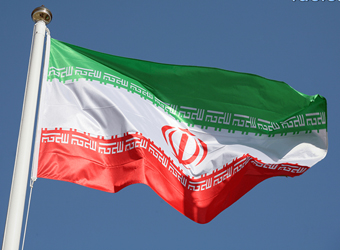Iranians will vote on Friday to decide the fate of moderate President Hassan Rouhani and his policy of engagement with the West as he goes head-to-head with hardline cleric Ebrahim Raisi.
Rouhani has spent four years trying to pull Iran out of its global isolation, reaching a 2015 deal with world powers that ended some sanctions in exchange for curbs to its nuclear programme.
But with US President Donald Trump threatening to scrap the deal, and visiting Iran’s bitter regional rival Saudi Arabia this weekend, that policy of detente looks increasingly in jeopardy.
Raisi, who is catching up on frontrunner Rouhani, has agreed to stick by the nuclear accord but says the president puts too much trust in the West.
“We should not show any weakness in the face of the enemy,” said the 56-year-old Raisi during a televised debate.
The election – the first since the nuclear accord – has essentially become a two-horse race after the other leading conservative, Tehran mayor Mohammad Bagher Ghalibaf, dropped out on Monday and threw his support behind Raisi.
The field narrowed further on Tuesday when reformist first vice president Eshaq Jahangiri pulled out and endorsed the incumbent.
Rouhani, a 68-year-old cleric, has tried to frame the election as a choice between greater civil liberties and “extremism”, and unofficial polls still put him ahead.
But he has faced a much tougher campaign than anyone expected just a couple of months ago, as hardliners have savaged his economic record, saying his diplomatic efforts have done little to tackle poverty and unemployment.
Who is the conservative candidate giving the president a run for his money?
Raisi, the main challenger, is a close ally and protege of supreme leader Ayatollah Ali Khamenei, and was one of four Islamic judges who ordered the execution of thousands of political prisoners in 1988. Iranian media have discussed him as a potential future successor to Khamenei, who turns 78 in July.
Raisi was a relative unknown when he joined the race earlier this year, having mostly worked behind-the-scenes as a top prosecutor and recently as head of the powerful Imam Reza charitable foundation.
He is seen as the preferred choice of the powerful security establishment, advocating a more self-sufficient “resistance economy” rather than a reliance on foreigners.
Raisi has tried to pick up working-class votes by promising more financial support, as well as playing on his status as a “seyed”, or direct descendant of Prophet Mohammed.
He has appealed to poorer voters by pledging to create millions of jobs.
“Though unrealistic, such promises will surely attract millions of poor voters,” said Saeed Leylaz, a prominent Iranian economist who was jailed for criticising the economic policies of Rouhani’s hardline predecessor Mahmoud Ahmadinejad.
Although the supreme leader is officially above the fray of everyday politics, Khamenei can sway a presidential vote by giving a candidate his quiet endorsement, a move that could galvanise hardline efforts to get the conservative vote out.
What about the nuclear deal?
Rouhani’s signature accomplishment has been his nuclear deal, which could be in jeopardy if he loses power, even though it was officially endorsed by Khamenei and all candidates say they will abide by it.
Trump has frequently called the agreement “one of the worst deals ever signed” and said Washington will review it.
Although the agreement lifted international sanctions, the US continues to impose unilateral measures that have scared off investors. Washington cites Iran’s missile programme, its human rights record and support for terrorism.
Some experts say Iranian establishment figures may want to keep Rouhani in power to avoid being cast back into isolation.
“With the deal in jeopardy, the system will be in vital need of Rouhani’s team of smiling diplomats and economic technocrats to shift the blame to the US and keep Iran’s economy afloat,” said Iran analyst Ali Vaez of the International Crisis Group.
Who is going to win?
“Raisi has a good chance to win. But still the result depends on the leader Khamenei’s decision,” said a former senior official, who declined to be identified.
So far in public Khamenei has called only for a high turnout, saying Iran’s enemies have sought to use the elections to “infiltrate” its power structure, and a high turnout would prove the system’s legitimacy.
A high turnout could also boost the chances of Rouhani, who was swept to power in 2013 on promises to reduce Iran’s international isolation and grant more freedoms at home. The biggest threat to his re-election is apathy from disappointed voters who feel he did not deliver improvements they hoped for.
“The result depends on whether the economic problems will prevail over freedom issues,” said an official close to Rouhani. “A low turnout can harm Rouhani.”
Polls taken by International Perspectives for Public Opinion on May 10 show Rouhani still leads with about 55 percent of the votes, although such surveys do not have an established record of predicting election outcomes in Iran.
If no candidate wins more than 50 percent of votes cast, the top two candidates will compete in a runoff election on May 26.
Because the conservatives are now mostly united behind Raisi, the result is likely to be closer than four years ago, when Rouhani won more than three times as many votes as his closest challenger en route to a victory in a single round.
However, every Iranian president since 1981 has won a second term.
Source: The Telegraph
